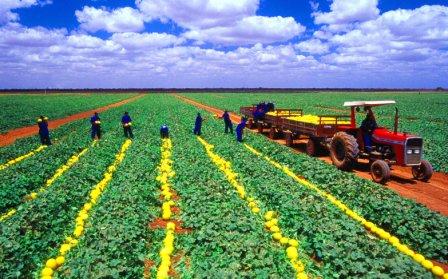
As the number of people sickened with any of the four outbreak-associated strains of Listeria monocytogenes associated with cantaloupe has risen to 109 in 24 states, with 21 deaths, media reporting and investigators are increasingly questioning on-farm food safety practices that may have led to such a catastrophic outbreak.
Lynn Brandenberger, who has worked in Oklahoma’s horticulture extension since the 1980s, has a message for farmers: Make sure your “farm is not a potential source for listeria contamination,” .jpg) adding that the effect the outbreak of the illness has on the crop markets is adverse.
adding that the effect the outbreak of the illness has on the crop markets is adverse.
His colleague at Oklahoma State University, Beth Schaefer Caniglia, an associate professor of environmental sociology, explains that when an outbreak like listeria occurs, even if it’s isolated to one farm or region, understandably people tend to avoid taking the risk.
Microbiologist Peter Muriana and horticulturist Brandenberger agree that listeria bacteria can originate from any animal source, including dogs and cats, as long as they shed any of these bacteria in their feces and then come in contact with food materials.
Mike Ssegawa of News Oklahoma cites the OSU professors as explaining the problem is much more serious than blaming the cantaloupes from Jensen Farms. Instead, it is about observing food safety practices from where the food is raised to where it is sold and prepared for dinner.
Wayne Whitmore, of Whitmore Farms in Coyle animals to get in contact with crops. So he urges consumers to “take some level of responsibility by washing fruits well before eating them.”
Brandenberger said, washing cantaloupe with warm water and a brush appropriate for cleaning fruits and vegetables is helpful, though “there are no sure ways to keep listeria from contaminating fresh produce”.
Muriana advises groceries to adhere to the “knowing your supplier” slogan, while reminding them to request letters of assurance or certificates of analysis.
Muriana maintains the latest outbreak is an opportunity to change the way business at the farms,  farmers markets, groceries, etc., is done to improve food safety.
farmers markets, groceries, etc., is done to improve food safety.
Farmers markets in particular, he said, lack a “nominal sanitation program or requirement.”
(Note: Mike Ssegawa is a Ugandan journalist. He is one of the 14 food security fellows from Kenya and Uganda at Oklahoma State University on a one-month exchange program supported by the U.S. Department of State to study farming in America. The program has seen them visit farms and ranches, and job shadowing at various organizations in Oklahoma to learn skills they can share when they return to their to countries.)
